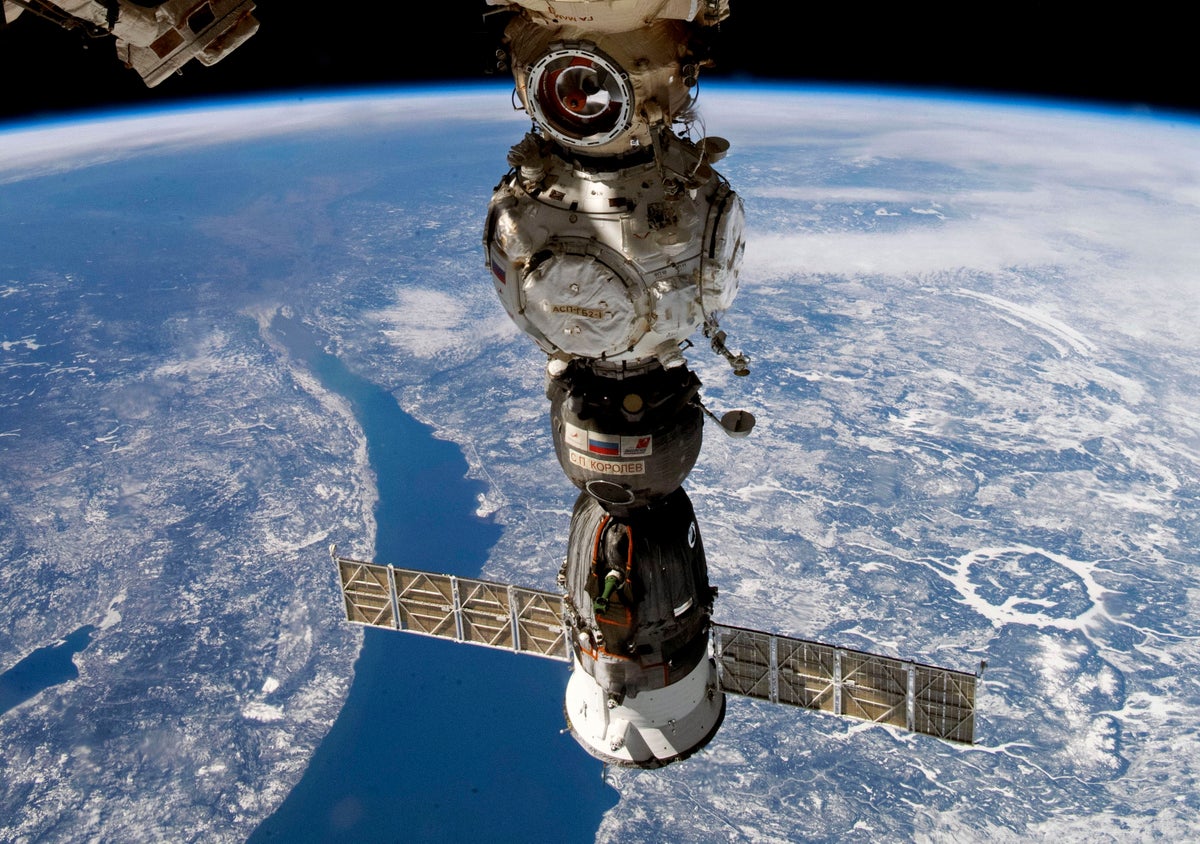
Russia's space corporation Roscosmos said Monday that a coolant leak from a Russian space capsule attached to the International Space Station doesn't require evacuation of its crew, but the agency kept open the possibility of launching a replacement capsule, if needed.
Roscosmos said a panel of experts would determine later this month whether the Soyuz MS-22 capsule could be safely used by the crew for its planned return to Earth or if it should be discarded and replaced.
It said the next scheduled launch of a Soyuz was in March but could be expedited, if necessary.
The leak from the Soyuz MS-22 was spotted last week as a pair of Russian cosmonauts were about to venture outside the station on a planned spacewalk. Russian Mission Control aborted the spacewalk when ground specialists saw a stream of fluid and particles emanating from the Soyuz on a live video feed from space.
Roscosmos and NASA both have said the incident hasn’t posed any danger to the station’s crew.
Roscosmos said the leak might have been caused by a micrometeorite or a piece of space junk striking one of the capsule's external radiators.
The corporation said Monday that the leak caused the temperature in the crew section of the capsule to rise to 30 degrees Celsius (86 degrees Fahrenheit). The temperature in the equipment section initially soared to 40 degrees Celsius (104 degrees Fahrenheit) but dropped to 30 degrees Celsius (86 degrees Fahrenheit) after ground experts switched some of the capsule's systems, Roscosmos said.
Roscosmos said the crew used ventilators in the Russian segment to blow cold air into the capsule to reduce temperature in the cockpit to comfortable levels.
“The increase in temperature on the Soyuz MS-22 spacecraft is admissible and isn't critical for the functioning of the equipment or health of the crew in case they need to be in the spacecraft,” Roscosmos said, adding that tests of the ship's control system determined it wasn't affected by the incident.
The space corporation said an inspection of the capsule's surface with a camera on a Canadian-built robotic arm helped spot the location of the coolant leak.
Prokopyev, Petelin and NASA astronaut Frank Rubio used the Soyuz MS-22 to arrive at the International Space Station in September, and it has served as a lifeboat for the crew. The capsule was scheduled to carry some of the space station’s crew back to Earth in March as part of regular rotations.
Along with Prokopyev, Petelin and Rubio, four other crew members are currently on the space outpost: NASA astronauts Nicole Mann and Josh Cassada; the Japan Aerospace Exploration Agency’s Koichi Wakata; and Anna Kikina of Roscosmos.







